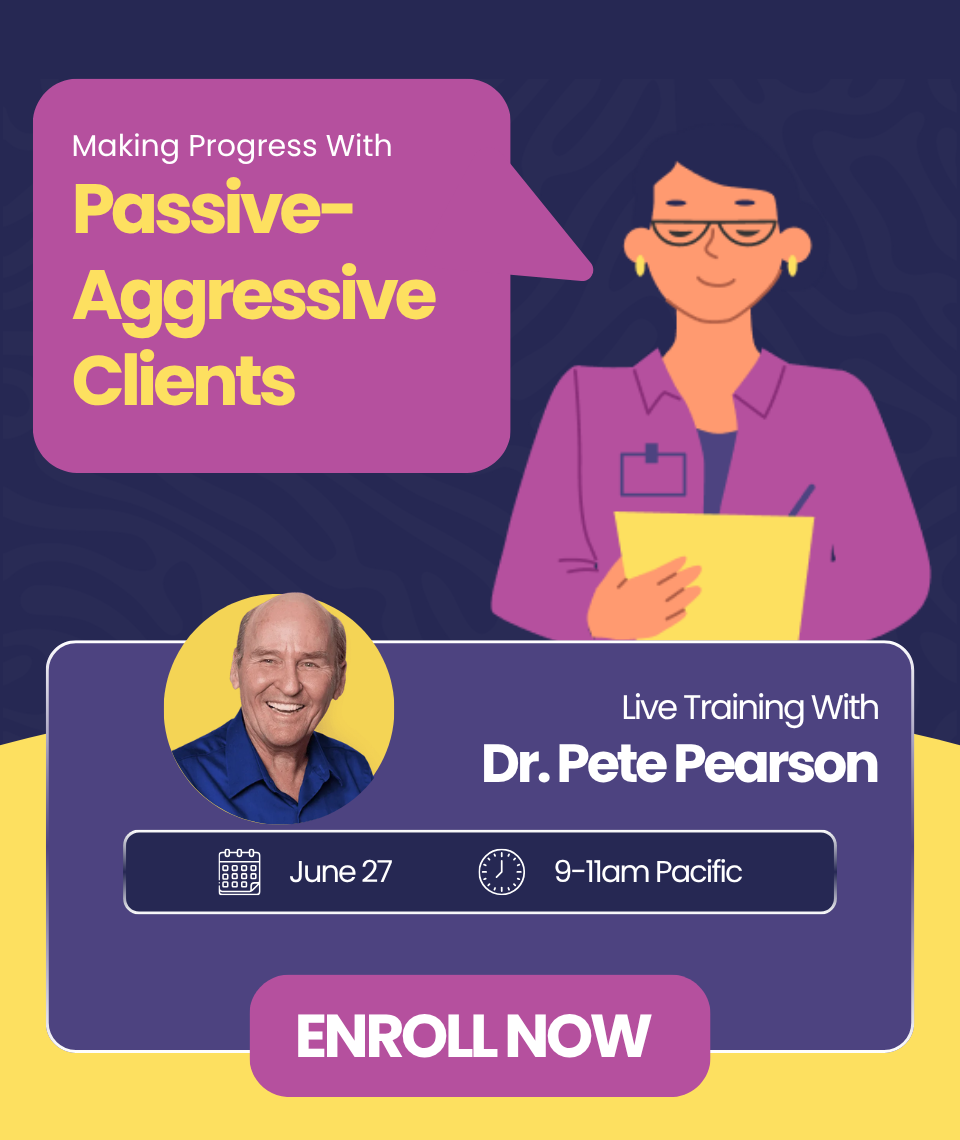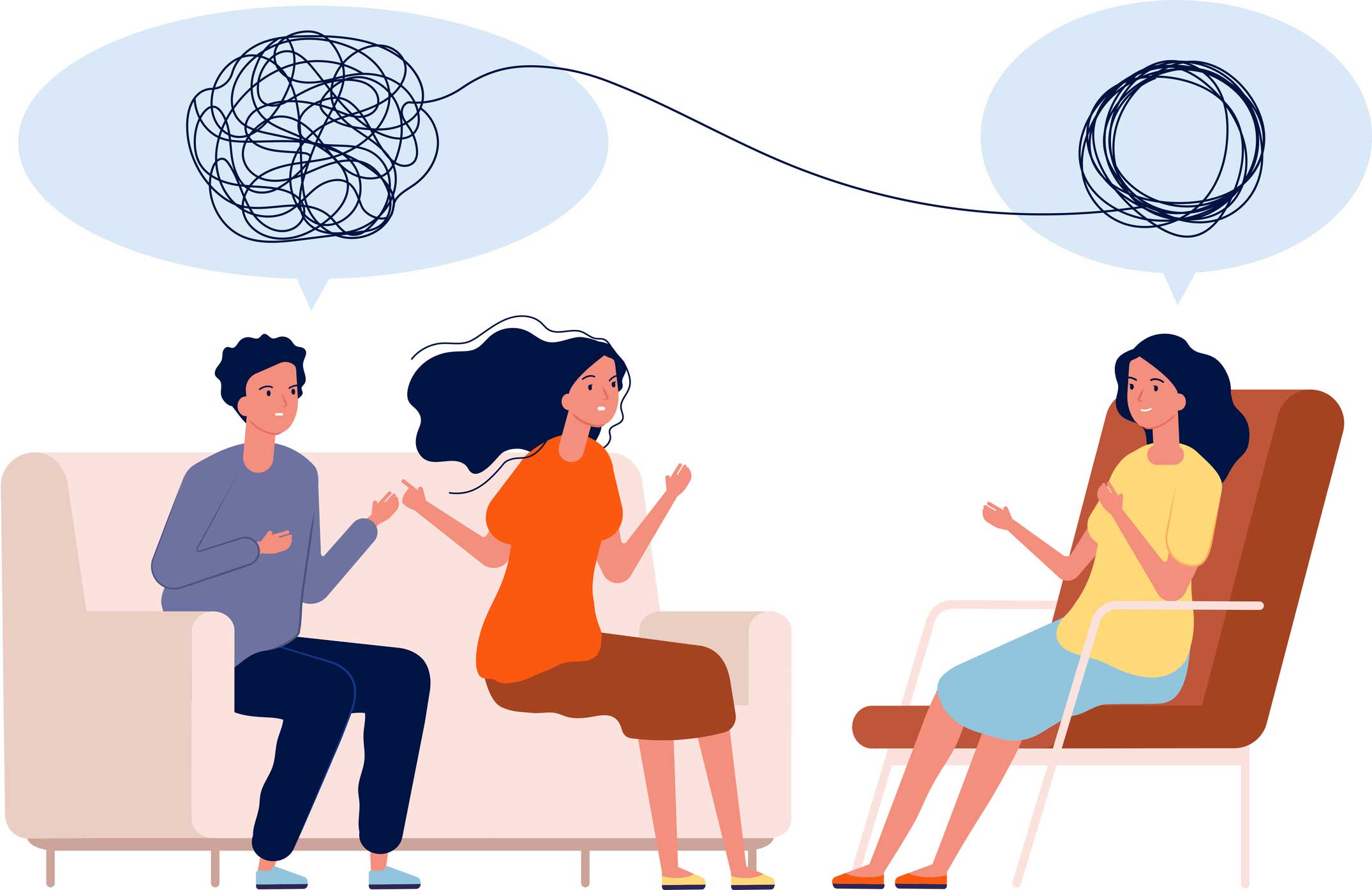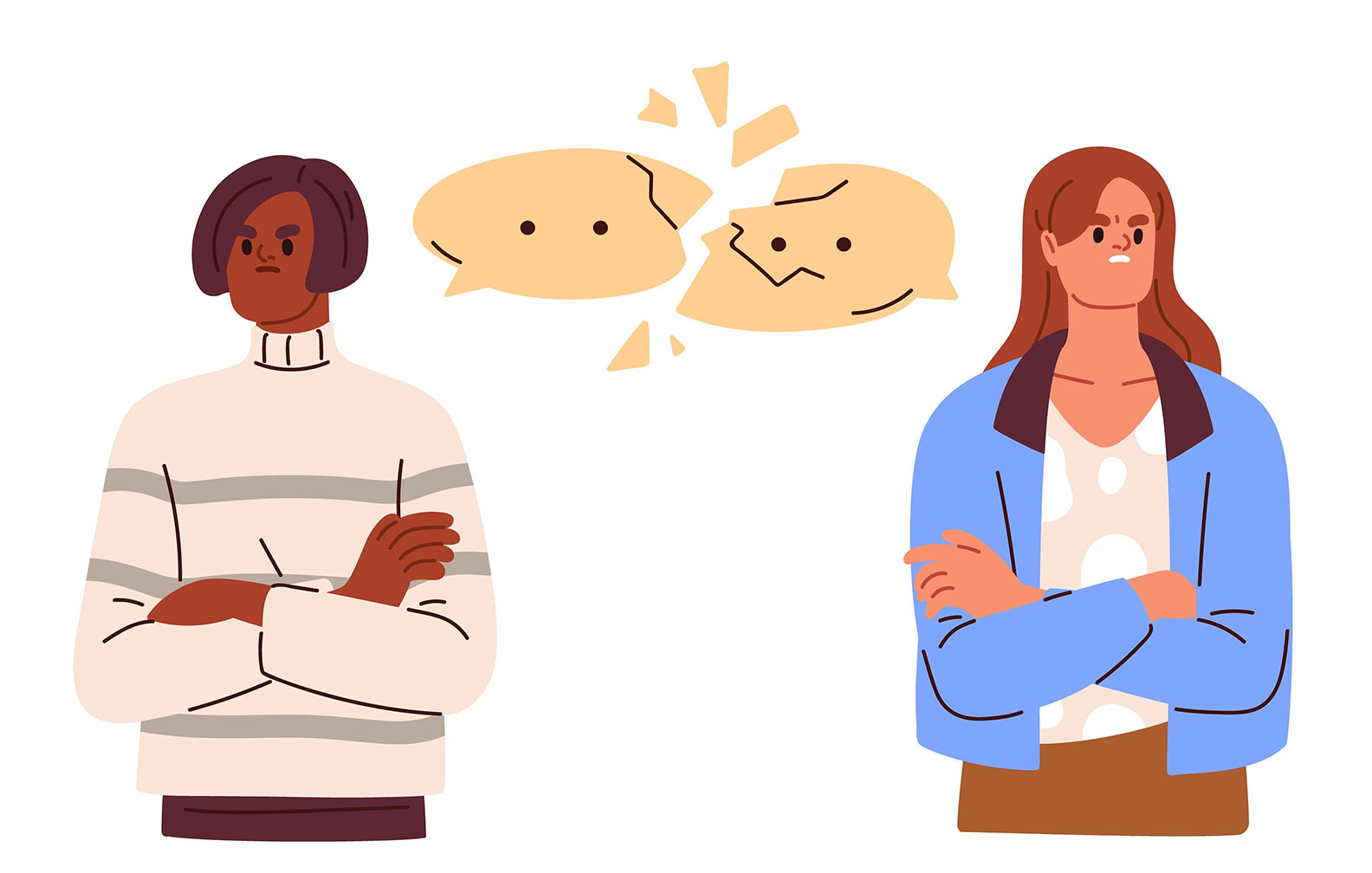I am stuck at home with COVID when I had planned to be in a beach house with Pete and our grandchildren. I’m feeling tired, disappointed, and also a little fuzzy in the brain. But even that doesn’t stop me from thinking about couples therapy!
I am thinking about what happens between two people that inhibits change and often frustrates therapists.
I’ll share 10 observations and I ask you to add yours in the commenting section below.
- Some partners believe they can’t change. They say, “I am set in my ways after all these years.”
- Some partners have little or no vision of what is possible and where they want to see their relationship evolve.
- Some partners believe and even state they have already tried everything and now it is no longer up to them.
- There is unresolved trauma from things partners have done to each other: infidelity, not being there in times of need such as surgeries, deaths, in-law challenges. The unresolved pain lives under the surface and prevents partners from being loving, caring and intimate.
- Partners say they will practice what they are learning but then they don’t.
- Partners have limited insight and awareness into their own role in keeping painful patterns going.
- Partners insist on partner reform rather than committing to their own evolution.
- When challenged and asked to be accountable or apologize, some partners regress into a victim position and say something like, “I can never do anything right.” Or “See I am unlovable.”
- Some partners won’t take initiative when the other does not mind read.
- Some partners believe only one can win when they differ or disagree. They will go to the mat to win rather than learn to collaborate.
This is just what comes to my covid-addled brain this morning. I’m sure you can add lots more and I will look forward to reading them if you put them in the comment section below.
With all these possible stuck interactions, it is no wonder some therapists say, “I’ll never work with couples again!”
So what do we do with this random, possibly discouraging list? A trainee described this as the challenge to identify and dismantle the diverse forms of resistance that clients all too often hide behind.
And that’s the treasure so I’m repeating it: identify and dismantle diverse forms of resistance that clients often hide behind.
Personally, I love this challenge. It is the intricate art of couples work. Can I find a way through and create movement in what one of my clients called treatment resistant subtle aggression? I believe this challenge mindset can make the entire process less daunting. The resistance is part of a puzzle, and it becomes remarkably rewarding to inch forward.
Being able to think developmentally is a great advantage in the face of this resistance. If you haven’t seen our free starter series you can get it here. For a bit more depth consider our “Introduction to the Developmental Model.”
Please comment below or add more to this list.



 We respect your privacy.
We respect your privacy.




And help deconstruct hesitancy and numbness, and invite to Go First, w how to Help Self, and Other to Help too. I’d offer F(a)T and FIT. Flash (assisted) Technique, and Feedback Informed Therapy.
In my country Venezuela, males tend to believe they have the right to be rough and dominant, and ignore that their spouses have needs and emotions. They don’t validate them and they do not make connection. They behave like a wall.
I can only hope that my day-to-day brain is as sharp as your Covid brain. Thank you for the words of wisdom. These are all the things we say to ourselves and our patients say to us.
Feel better, as always Deb
Get well soon 💐👍🏻
Thanks for this article. I have fallen into all of these patterns with my partner and see a disheartened attitude as a common defensive mechanism that forms part of the resistance.I have struggled with communication, like not speaking the same language as my partner, that has led to mistakes on my part and misunderstandings. Practhice and study to overcome pride is my responsibility.
Projecting their own challenges or self defeating beliefs onto their partner: “ I’m never enough, you think I’m ______. “. I ask them if they believe that about themselves…
No being present. Instead, people see their partner through a lens of the past and the past hurts. It’s then hard to see their partner through their veil of anger. It prevents them from seeing their partner as they are. It prevents curiosity and potential understanding and empathy and even forgiveness (although I use the perspective from NVC or the Sufi mystic Rumi, which is outside of notions of “right” and “wrong” – i.e., no one did anything “wrong” that calls for forgiveness).
Expectations don’t reflect reality…
If the couple is a narcissistic couple there might be traumatic bonding taking place and one member may not “notice” that unreasonable demands are being made. The requests for change may be impossible without complete loss of or shattering of the “Self”. Another thought is if a traumatic reenactment is operating, Insight may not be available
Fear and inaccessibility of buried emotions from historical events/trauma
One person is a narcissist and is not open to suggestions or change. One person has major depression and is not interested in changing. One partner is used to blaming others and not taking any responsibility for their actions. It is not until one person puts their foot down and wants a divorce until the partner realizes change is necessary. Their has to be some motivation by the difficult partner to make changes. They have to realize that they value their marriage.
Totally this! When The actual threat of leaving arises, AND THEN there’s some feelings!!! that’s hurtful to the one who’s always been hopeful and trying to foster change, and being ignored or not receiving responses to their efforts in return. In these circumstances my biggest concern is about the emotion that is eventually expressed is about fear and insecurity- a selfishness for themselves about being left, rather than as a sadness or alarm about the system.
Lots of things make change challenging and some boil down to poor habits. Three habits that can facilitate change are to develop a optimistic mind set and the time to start this is in the morning before you get out of bed. This is how I made gratitude a automatic habit. Second habits is to find your motivators and after you practice your new skill you celebrate and give yourself a reward. A third step is to realize your inner faulty belief system and do the work to change the belief. More on that later.
Yes, a great list. And, there may be templates set up in a person’s brain from childhood that result in Reactions, what Terence Real calls Adaptive Child reactions, that don’t allow a person to have a Wise Adult kind of thought process (or Responses).
I also think people unconsciously resist change because it feels safer to stay where they are. Change is unknown and could create a situation where people are forced to make a decision. So being in limbo somehow feels safer, although it sure looks and feels miserable for everyone. Including the therapist.
I feel for you, missing out on your beach vacation with family. It strikes me that being tired and fuzzy are also obstacles for couples trying to improve their relationships, so an addition to your great list might be whether each partner is taking care of themselves physically – sleep, diet, taking time for emotional and physical restoration.
Meanwhile, here’s to your speedy release from COVID imprisonment!
I think projection is what destroys most relationships. People hide their shadow selves and project it onto their partners or act out their unconscious beliefs. Please check out my book. At the Edge of Goodbye-How to Live Your Best Life With or Without Your Partner. It can be purchased on Amazon
If one of the partners keep having excuses (“I can’t change, I have more childhood trauma in my life than you have”) , and have some undiagnosed mental health disorder for example borderline personality disorder etc.
Had someone who said ‘im asperger, thus, my reactions depend on my mood, … ‘
Change is hard it requires work to monitor one’s behavior and do something differently. Most people are lazy; they take the easy way if doing what they always do. It’s not can’t its doing what I always do cause it’s comfortable, thus easy.
Please feel better soon, Ellyn!! I’m so sorry you have covid. Sending healing thoughts
I am Rosario I come from Cuba in my country I was a psychiatrist. It’s only been almost six months. COVID was an immense challenge for individuals and for couples. The economic situation became even more tense and the demands fell mainly on women. you had to make huge queues for food and the cost of these was increasingly high. Therefore, the woman frequently assumed the queues to buy food for six and seven hours and the man was required to be more economical, which was not possible to achieve at that time. Because of what the couple distanced, the woman got very tired and the man got frustrated, adding to this the fear of getting sick, the care of each one to avoid affecting each other had to do with the existing consideration for each other. Feelings and relationship styles changed.
Wishes for healing…and for having some other special time with the grandkids!
A couple may find it difficult to change patterns of behaviour because they keep assuming a negative feeling in their partner (eg: that their partner won’t welcome affection, that if their partner is quiet that it is a form of hostility to the other partner, that concern is just hostility etc)
One or both people being unwilling to recognise how much of their reactivity towards their partner has its origin in early learning experiences. I know operate by the rule “if they aren’t onto their upbringing, they aren’t onto themselves”.
I also find it challenging that when unpacking an exchange that has occurred between couples, neither can agree on what happened. While I do believe rehashing is a dead end, how do we move forward when a new couple comes in and can’t agree on what the problem is?
The 10th one is the most frequent I think. Along w partner change first, then I’ll consider it. And not seeing the bigger pic w a common goal and a win/win solution. Also forgetting the damage to kids who are trapped in toxic atmosphere. And let’s not forget the whine, “ why does it have to be so hard or so much work!” I still find it rewarding to make the inch by inch progress.
Very valuable insight of the problem. I want to add a few more. 1 inflexibility and a very rigid approach. 2 Fusion with the idea of ideal relationship. 3 avoidance in resolving the issues at initial stages
fear, sometimes terror of the unknown of one or both partners
Some partners just do not have the tools of negotiation and see collaboration as threatening. Feel better soon.
demanding to be listened to before listening. or refusing to listen until listened to… it’s a catch 22.
One partner may be too “kind” to say things which they feel might hurt or discourage their partner, so they avoid doing so or give mixed messages. Encouraging them both to notice this, and to agree to be “bold” and clear, but with kindness/softness, can help them move forward. Maybe to make (and agree…!) a list of what is, and isn’t, happening in their relationship (in terms of visible actions) – that can help bring some clarity to the situation (which has often become stagnant as each partner tiptoes round the margins & avoids getting to the crux of things). If it can be done slowly, and gently, in a collaborative way and without blame or judgement, just creating a list of what is actually happening/not happening can be a useful step towards moving things forward.
I hope you feel loads better soon, Ellyn. How frustrating and disappointing to miss being at the beach house and with Pete and the youngsters.
The Adapted Child part is so powerful in controlling relationship and family decision-making and associated behaviours, and can/will not trust that the Wise Adult part has the ability to take over and act in ways that suit the present day context while caring for the Wounded Child part/s and the soon to be redundant Adapted Child… Therefore experiencing constant fear in the absence of danger (i.e. anxiety) – so never in their ventral vagal space – therefor rarely able to think straight…
Very best wishes for a speedy recovery Ellyn
In one of my couples, the husband thinks he does everything the right way and if his wife would “only” do things his way, they would not have any problems.
Hi Ellyn, sympathies, missing out on family is a bummer. I’m with Deb and can only hope that my day-to-day brain is as sharp as your Covid brain. I think another reason people don’t change is they’re trying to rush it, and they simply need to slow it down and give themselves more time.
I’m seeing just a lot of fear. Fear in all its many forms: fear of failure, fear of abandonment, fear of uncertainty, fear of desire, fear of not knowing how, fear of embarrassment. I feel so much compassion for this and I’m working at figuring out the next developmental step, just that step that is close enough for someone to reach, to help the incremental changes begin to build. Ellyn, I hope you can feel better and get some time with your family soon! Covid isolation is no good!!!
Observing my ADHD couples, the ADHD partner tends to enjoy the ease of things being taken care of and it is a comfortable place for them to be, even though their partner is angry, nagging, blaming, as long as these voices are not loud enough to bother them, they prefer to be cared for and in the one down position. For the non-ADHD or more competent ADHD partner, they enjoy the one-up caregiver position as it’s more powerful with certain control, and some loves being the competent one-it is safe.
After honeymoon period is over, men tend to become their fathers and women become their mothers in the marriage. That’s what they learned. The question is: Would my father have married her mother or vice versa? Why, why not? How long do you think that marriage will last?
So sorry to hear you got Covid, Ellyn! Wishing you a speedy recovery.
When one or both partners tell you they themselves don’t want to change, yet they keep coming back, only to “try” and argue (this program taught me how to put an end to the arguing). I catch myself working overtime and then feel very frustrated when there are no fruits to my labor.
I’ve come across many that consider they are as caring, romantic, nice as before. That the problem is that the partner doesn’t see it and is constantly looking for the wrong doings.
Hi Ellyn, hope you feel better soon and get some relaxed time with the family. Thank you for the invite to this participatory blog filled with a wide range of curious observations. It made me think for a bit as I don’t work with couples, as yet. I work with people in teams, enabling conversations for collaborations, etc. So, I draw on my experiences of communicating with people through work.
I feel lacking self-awareness and clarity of what it means to be or to become ‘one team for a common outcome / goal’ could inhibit change.
Sometimes, not taking the time to reflect or not being present or living in fear or living in a reactive state or not taking responsibility of ones behavior & emotions; especially during a difficult season of life can put one in a short-circuited state which can break the ‘one team’ connection and push the couple into competitive mode or distrusting mode or simply disengaged with life.
I feel developing the intentionality and skillsets to practice finding a way / navigating change is essential for being a healthy individual. Having said that, I can recall times when I have found myself with my back against the wall and my intention is temporarily buried because all I have thought in that moment is ‘what’s the next step I can take to move forward/ to unstuck myself?’.
I am beginning to learn more about symbiosis & differentiation, and grow my understanding of how ones perception of (1) self & life (2) circle of influence & support (I.e. environment around) could nurture a growth mindset or fuel doubt and breed toxicity from anger, fear and others. It’s fascinating how multi-faceted each human experience can be! Going to stop here before I get more chatty 😊
Sending you get well soon wishes🙏
Ellyn, Every one of these thoughts/ideas has been on my mind recently. We hear these things said, felt, believed by clients all the time. I keep asking myself “How can I ask the type of questions that will help individuals to reflect beyond their complaint and find that event, idea, that will motivate them to work on change. In Pete’s brief article for couples about what to expect from couples therapy he mentions “learning new things¨and because I believe learning is a process, an effort, creating a way to do something different that I didn’t know before”. I talk with my couples about the importance and willingness to try/learn/do things that are new and different.
Do take care of yourself. Thank you for all you offer, share and know! Desde Colombia con cariño y admiración, Jeannette
Dear Ellyn, I wish you a non-covid state as soon as possible! Thank you for your list. I will think through and find out experiences from my practice. hard to find something that you did not mean…
Thank you for the chance to share ideas. Not enough discomfort to motivate change. Many people live in relative comfort, sometimes getting needs met through friends, work, sport. I think that partners who lack friction can put energies into keeping the status quo- they can do it very well as conditioned from childhood. This circumnavigates vulnerability that’s needed to build the capacity for repair. Any tension is utilised trying to not ‘mess up’ because then this adds further to the divide of resentment and the message that it’s not ok to get things wrong. It’s not about getting stuff right or wrong, it’s about how we can hold ourselves and utilise the safety of the relationship to soothe and build closeness.
One can only change if the self belief is there that you can and the environment around you is encouraging. If couples do not know how to encourage each other, do not create a safe space to change together, are not focusing on each others strengths and potential development than change is not really an option. A plant without water will not grow. It is important for a couple to know what is helpful both in vision, approach – both individually and together.